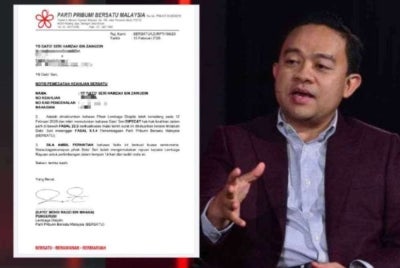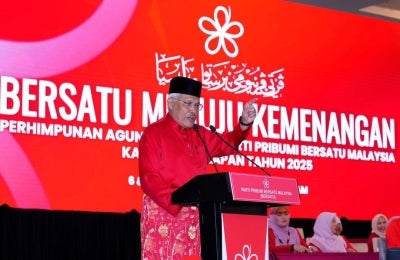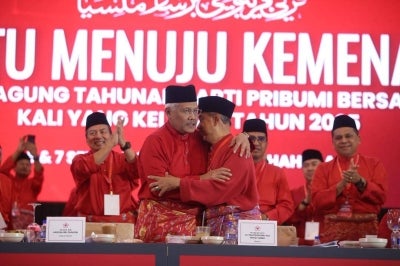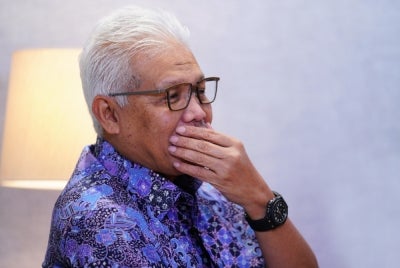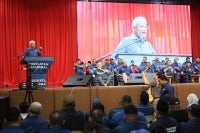Politicians fuelling race, religious divisions risk leading to extreme beliefs among Malaysians, warn experts

SHAH ALAM - Experts warn politicians are dividing Malaysians into a 'deep-seated division' of race and religion which could potentially lead to extreme beliefs and action.
International Islamic University Malaysia (IIUM) Political Science Association Professor Dr Syaza Shukri said when people consistently view themselves and others as divided based on race and religion, it can create a sense of deep-seated division and potentially lead to extreme beliefs and actions.
"We have to understand it is human nature to belong and the it could be done positively.
"Malaysian politicians, on the other hand, they do it negatively, when I say negatively, I meant they stress our differences and a supposed hierarchy. That’s dangerous, Syaza said.
Syaza said the country would not end like Afghanistan as Malaysians are not prone to radical and extremist ideas.
"But it is definitely part of our political culture to be divided by race, unfortunately who are looking at short term gain," she added.
Universiti Putra Malaysia (UPM) Political Science professor Datuk Dr Jayum Anak Jawan said the Malaysian political system has long been influenced by racial dynamics and has remained entrenched in such a system since the early days of Malaya.
He said even after more than 60 years since independence, the Malaysian political system has remained largely unchanged, with politicians relying on the existing racial dynamics without recognising the need for reform.
"The division between rural and urban areas continues to play a prominent role in Malaysian politics," he told Sinar Daily.
"Furthermore, there is a stark contrast in views between those in urban and rural areas," he said, adding that there are complexities influence of religion, which further divides Malays into modern and conservative factions.
Due to that, he said the upcoming state elections will revolve around the still dominant factors that divide Malaysians, namely the 3R (race, religion, and royalty).
This is because, he said these factors continue to evoke strong reactions and garner support from various segments of the population.
"Religion is used by conservative Malay politicians to unite Malay by instilling fear of others and if it is not religion, then it is used with the fear of race," Jayun said.
On the other hand, Professor Datuk Dr Shamsul Amri Baharuddin from the Institute of Ethnic Studies (KITA) said that while it is not appropriate to manipulate sentiments using the 3R for political gain, no ethnic group can entirely evade these issues.
He said extremism existed during the time when Parti Komunis Malaya was active, as their methods to achieve their political agenda involved violence and the killing of people. He said PKM can be seen as an example of extremist ideology in Malaysia, preceding the emergence of the Taliban in Afghanistan.
He called the 3R sentiments in Malaysia as "identity politics" which he said could be traced to the Colonial Census introduced in 1871 and held every 10 years, the last was in Census 2020.
"The Census was created for administration, namely, budget creation, tax collection and land administration. It includes ethnicities with subethnic categories," he said.
For census purposes, the subethnic groups in Malaysia were often consolidated and categorised into major ethnic groups such as Malay, Chinese and Indian and the ongoing struggle among them, he said.
However, starting from the 1900s, each ethnic group in Malaysia has gradually acquired economic, socio-religious, and cultural dimensions that shape their respective identities.
As a result, prejudice and stereotypes about each ethnic group have become increasingly prevalent in society, he said.
Shamsul Amri said these values and characteristics associated with each ethnic group have now been internalised and embraced, contributing to the formation of their identities.
"The formation of Federation of Malaya 1957, the Federation of Malaysia in 1963 consolidated and legalised ethnic identities with new additions in Sabah and Sarawak.
"Vernacular schools further deepened ethnic differences, plus post- 1969 government policies.
"Political parties organised the campaign and manifestoes based on the constructed ethnic identities and characteristics," Shamsul further told Sinar Daily.
He said these political parties are organised based on ethnic groups identities, so are the politicians who become members of the parties whether Malay-based parties or Chinese or Indian.
In addition to Malay parties, Chinese parties also have components related to the 3R which includes language, culture, and education.
Pacific Research Center principal adviser Oh Ei Sun further commented there is a societal price to be paid for doing so, in the form of social disharmony or even violence as vividly demonstrated in many other multicultural failed states.
"At least in the short run it would be difficult to dislodge such ways of thinking and politicking.
"In reality, politicians typically do not rise above the communal frays but rather ride on them to hopefully coast to east electoral wins," Oh said.
Download Sinar Daily application.Click Here!


